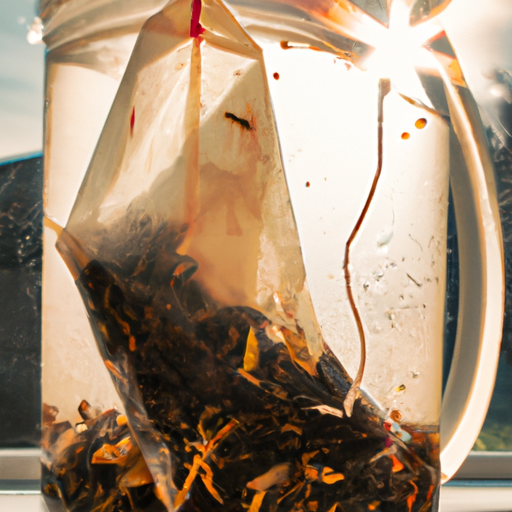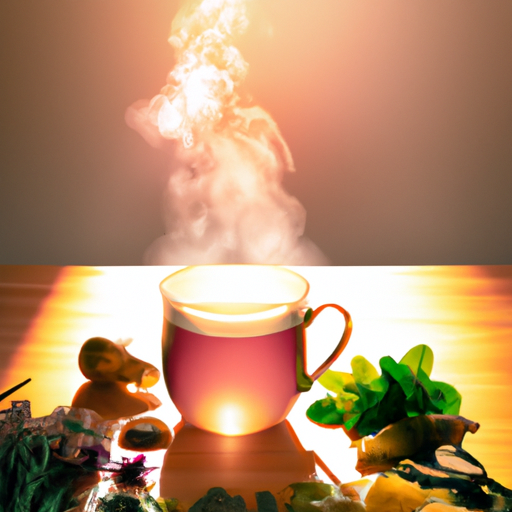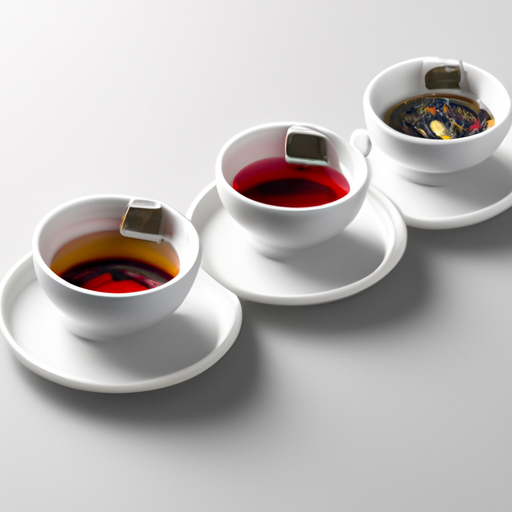Is it possible to enjoy the benefits of intermittent fasting while still being able to have your herbal tea? They say you can’t have your cake and eat it too, but what about herbal tea?
As someone who has personally explored the world of intermittent fasting, I understand the desire to find that perfect balance between nourishing our bodies and achieving our health goals.
In this article, we’ll delve into the intriguing topic of whether or not herbal tea is compatible with intermittent fasting.
Intermittent fasting has gained popularity for its potential health benefits, including weight loss, improved insulin sensitivity, and cellular repair. But what about herbal tea? Is it considered a friend or foe to our fasting state?
We’ll explore the impact of herbal tea on fasting, discuss the best herbal teas to incorporate into your fasting routine, and debunk common misconceptions surrounding this topic.
Join me on this evidence-based journey as we uncover the truth about herbal tea and intermittent fasting, and learn how to find that perfect harmony in our pursuit of a healthier lifestyle.
Key Takeaways
- Herbal tea can be consumed during intermittent fasting as long as it is calorie-free and does not contain sweeteners.
- Choosing herbal teas without caffeine or additives is important to maintain the fasting state and avoid interference with fasting benefits.
- Herbal teas like chamomile, peppermint, and ginger offer various health benefits such as reducing stress, aiding digestion, and soothing digestive issues.
- Herbal teas can promote a healthy gut, aid digestion, provide hydration, curb cravings, and support weight management during fasting periods.
Understanding Intermittent Fasting
So, can you have a nice cup of herbal tea while you’re doing this whole intermittent fasting thing? The answer is yes! Intermittent fasting is a flexible eating pattern that allows you to consume certain beverages, like herbal tea, during your fasting window. The key is to choose herbal teas that don’t contain any calories or sweeteners.
Herbal teas, such as chamomile, peppermint, or ginger, are great options because they’re naturally calorie-free and can provide various health benefits. Incorporating exercise into your intermittent fasting routine can enhance the benefits of fasting. When you exercise while fasting, your body taps into stored fat for energy, leading to increased fat burning and weight loss. Additionally, exercise can help improve insulin sensitivity, boost metabolism, and promote overall cardiovascular health.
Exploring herbal tea options can add flavor and enjoyment to your intermittent fasting journey. Herbal teas come in a wide variety of flavors and can provide additional health benefits. For example, chamomile tea has calming properties that can help reduce stress and improve sleep quality. Ginger tea can aid digestion and alleviate nausea. Peppermint tea can soothe digestive issues and freshen breath. Remember to opt for herbal teas without any added calories or sweeteners to maintain the fasting state.
Incorporating herbal tea into your intermittent fasting routine can be a great way to stay hydrated and enjoy flavorful beverages while reaping the benefits of fasting.
Exploring Herbal Tea
Indulge in the soothing warmth of nature’s infusion, allowing the fragrant elixir to grace your palate during your time of mindful abstention. Herbal tea, with its myriad of health benefits, can be a delightful addition to your intermittent fasting routine. From promoting relaxation to aiding digestion, herbal teas offer a wide range of advantages for both body and mind.
Here are three sub-lists that delve into the health benefits and herbal tea recipes for different health conditions:
-
Health Benefits of Herbal Tea:
- Calming Effects: Chamomile tea has been used for centuries to promote relaxation and reduce anxiety.
- Digestive Aid: Peppermint tea can help soothe an upset stomach and relieve indigestion.
- Immune Booster: Echinacea tea is known for its potential to strengthen the immune system and combat common cold symptoms.
-
Herbal Tea Recipes for Different Health Conditions:
- Sleep Aid: Try a blend of chamomile, lavender, and valerian root for a restful night’s sleep.
- Digestive Support: Mix ginger, fennel, and peppermint to ease digestive discomfort.
- Anti-inflammatory Blend: Combine turmeric, ginger, and cinnamon for their potent anti-inflammatory properties.
As you explore the world of herbal tea and its benefits, it’s important to understand the impact it may have on your fasting state.
[Transition to the subsequent section about the impact of herbal tea on fasting state.]The Impact of Herbal Tea on Fasting State
Experience the magic of herbal infusions and discover how they can affect your fasting state. Herbal tea is a popular choice for those practicing intermittent fasting due to its potential benefits. When consumed during the fasting period, herbal tea has minimal impact on weight loss. This is because it is typically low in calories and does not contain any macronutrients that would break the fast. However, it is important to be mindful of the ingredients in herbal teas, as some blends may contain added sugars or artificial flavors that can interfere with your fasting goals.
One of the key benefits of herbal tea is its positive impact on digestion. Many herbal teas, such as peppermint or ginger, have been traditionally used to soothe digestive issues like bloating and indigestion. These teas can help promote a healthy gut and improve overall digestion, which is important for maintaining weight loss and overall well-being.
To better understand the impact of herbal tea on fasting, let’s take a look at the table below:
| Herbal Tea | Impact on Weight Loss | Benefits for Digestion |
|---|---|---|
| Peppermint | Minimal | Soothes digestive issues and reduces bloating |
| Ginger | Minimal | Improves digestion and aids in nutrient absorption |
| Chamomile | Minimal | Calms the digestive system and promotes relaxation |
As you can see, herbal teas can have a positive impact on digestion without significantly affecting weight loss during fasting. In the next section, we will explore the best herbal teas to incorporate into your intermittent fasting routine.
Best Herbal Teas for Intermittent Fasting
One interesting statistic to note is that peppermint, ginger, and chamomile teas all have minimal impact on weight loss and offer various benefits for digestion. When it comes to herbal tea for intermittent fasting, these flavors can be a great choice.
Here are some herbal tea benefits to consider:
- Peppermint tea: Known for its soothing properties, peppermint tea can help relax the muscles of the digestive tract, reducing bloating and indigestion.
- Ginger tea: This spicy tea is not only delicious but also aids in digestion and can help alleviate nausea and inflammation.
- Chamomile tea: Famous for its calming effects, chamomile tea can promote relaxation and improve sleep quality.
These herbal tea flavors offer a range of benefits that can enhance your fasting routine. Whether you prefer the refreshing taste of peppermint, the warming spice of ginger, or the gentle relaxation of chamomile, there’s a herbal tea option for everyone.
Incorporating herbal tea into your fasting routine can be a simple and enjoyable way to support your overall well-being. It can provide hydration, satisfy your taste buds, and offer potential health benefits. So, let’s explore some tips for incorporating herbal tea into your fasting routine.
Tips for Incorporating Herbal Tea into Your Fasting Routine
When it comes to incorporating herbal tea into your fasting routine, timing is key. It’s best to consume herbal tea during your fasting window to avoid any potential interference with the benefits of fasting.
Additionally, choosing the right herbal tea is important, as some teas may contain caffeine or other compounds that can disrupt your fasting state.
Lastly, it’s crucial to avoid additives and sweeteners in your herbal tea, as they can spike your blood sugar levels and break your fast.
Timing Your Herbal Tea Consumption
Although it’s recommended to time your herbal tea consumption wisely during intermittent fasting, it’s important to note that herbal tea without any additives or sweeteners can be consumed without breaking your fast. Timing your herbal tea consumption can enhance the benefits of herbal tea and support your fasting goals.
For instance, consuming herbal tea before a meal can help control appetite and promote digestion. On the other hand, drinking herbal tea after a meal can aid in digestion and reduce post-meal bloating. Additionally, herbal tea can provide hydration and offer various health benefits, such as boosting immunity, reducing inflammation, and promoting relaxation.
To make the most of your fasting routine, it’s essential to choose the right herbal tea that suits your taste preferences and health goals.
Transitioning into the next section, let’s explore the different types of herbal tea options available for you to choose from.
Choosing the Right Herbal Tea
Finding the perfect herbal infusion can be a delightful journey that satisfies your taste buds and nurtures your well-being. When choosing herbal blends for your intermittent fasting routine, it’s essential to consider their health benefits.
Herbal teas like chamomile, peppermint, and ginger can aid digestion, reduce inflammation, and promote relaxation. Green tea is also a great option as it contains antioxidants that may support weight management. Additionally, herbal teas like dandelion and nettle can act as natural diuretics, helping to eliminate excess water weight.
It’s important to note that while herbal teas are generally safe to consume during intermittent fasting, it’s crucial to avoid additives and sweeteners that may break your fast. This includes sugar, honey, milk, and artificial sweeteners.
Transitioning into the next section, let’s explore how to find herbal teas without these unwanted extras.
Avoiding Additives and Sweeteners
To ensure your well-being while enjoying herbal infusions, be mindful of additives and sweeteners, as they can undermine the weight management benefits you seek. Studies have shown that consuming even small amounts of added sugar can lead to weight gain and an increased risk of chronic diseases.
When it comes to intermittent fasting, it’s important to choose herbal teas that are free from artificial sweeteners and additives. Herbal teas, such as chamomile, peppermint, and green tea, offer numerous health benefits. They are rich in antioxidants, can aid digestion, and may even help with weight loss.
By avoiding artificial sweeteners and opting for pure herbal teas, you can fully reap the benefits of intermittent fasting.
Now, let’s address some common misconceptions about herbal tea and intermittent fasting.
Common Misconceptions about Herbal Tea and Intermittent Fasting
Sure, you might think that herbal tea would break your fast, but let me assure you, it’s actually a common misconception! Many people believe that any kind of intake, even non-caloric beverages like herbal tea, would disrupt the fasting state. However, research suggests that herbal tea can be consumed during intermittent fasting without negatively impacting its benefits.
One of the main misconceptions about herbal tea and intermittent fasting is that it contains additives or sweeteners that can spike insulin levels and break the fast. While it’s true that some herbal teas may contain additives or sweeteners, there are plenty of options available that are free from these additives. Therefore, it’s important to read labels and choose herbal teas that are pure and free from any potentially fasting-breaking ingredients.
Moreover, herbal tea offers numerous health benefits that can complement the effects of intermittent fasting. Many herbal teas are rich in antioxidants, which can help reduce inflammation, support immune function, and protect against chronic diseases. Additionally, certain herbal teas, such as chamomile or peppermint, have calming properties that can aid in relaxation and stress reduction during the fasting period.
Finding balance with herbal tea and intermittent fasting is possible. By choosing pure herbal teas without additives or sweeteners, you can enjoy the health benefits they offer without compromising the fasting state. So go ahead and savor a warm cup of herbal tea during your fasting window, knowing that it can actually enhance your fasting experience.
Transitioning into the subsequent section, let’s explore the different ways you can incorporate herbal tea into your intermittent fasting routine.
Conclusion: Finding Balance with Herbal Tea and Intermittent Fasting
Now that we’ve debunked some common misconceptions about herbal tea and intermittent fasting, it’s time to find a balance that works for you. Intermittent fasting can be a powerful tool for weight loss and overall health, but it’s important to listen to your body and make adjustments as needed.
When it comes to herbal tea, there are several benefits that can support your intermittent fasting journey. First, herbal tea is calorie-free, so it won’t break your fast. Second, certain herbal teas like green tea or oolong tea have been shown to boost metabolism and aid in weight loss. Finally, herbal teas can provide hydration and help curb cravings during fasting periods.
To find balance with herbal tea and intermittent fasting, consider the following:
-
Experiment with different types of herbal tea to find flavors you enjoy and that support your fasting goals.
-
Pay attention to how herbal tea affects your hunger levels and energy during fasting periods.
-
Remember that moderation is key – don’t rely solely on herbal tea to sustain you during fasting periods. Listen to your body’s hunger cues and make adjustments as needed.
By finding the right balance and incorporating herbal tea into your intermittent fasting routine, you can enjoy the benefits of both practices and support your overall health and wellness journey.
Frequently Asked Questions
Can herbal tea break my fast while intermittent fasting?
Herbal tea can be enjoyed during intermittent fasting as it provides hydration without breaking the fast. In fact, it can offer various benefits such as improved digestion, reduced inflammation, and increased antioxidant intake.
Are there any herbal teas that can enhance the effects of intermittent fasting?
There are several herbal teas that can enhance the effects of intermittent fasting. Some of the best herbal teas for intermittent fasting include green tea, oolong tea, and peppermint tea. These teas provide various benefits such as boosting metabolism and aiding digestion.
Can I add sweeteners or milk to my herbal tea while fasting?
I recommend avoiding sweeteners and milk in herbal tea while fasting. These additions can cause an insulin response, potentially breaking your fast. Stick to plain herbal tea to fully benefit from intermittent fasting.
Is it safe to drink herbal tea during my fasting window?
Drinking herbal tea during your fasting window can support digestion and help manage hunger cravings. It provides a soothing sensation and may have potential benefits for your intermittent fasting journey.
Will drinking herbal tea affect my weight loss goals while intermittent fasting?
Drinking herbal tea while intermittent fasting can support weight loss goals. Herbal tea provides hydration and can help control appetite during fasting, making it a beneficial choice for those practicing intermittent fasting.
Conclusion
In conclusion, incorporating herbal tea into your intermittent fasting routine can be a great way to enhance the experience and reap the benefits of both practices. Herbal teas, such as green tea and chamomile, have been shown to have positive effects on digestion, metabolism, and overall well-being.
However, it’s important to remember that moderation is key and to consult with a healthcare professional before making any drastic changes to your fasting routine. As the old adage goes, "Everything in moderation, including herbal tea." Finding the right balance is crucial for success.










